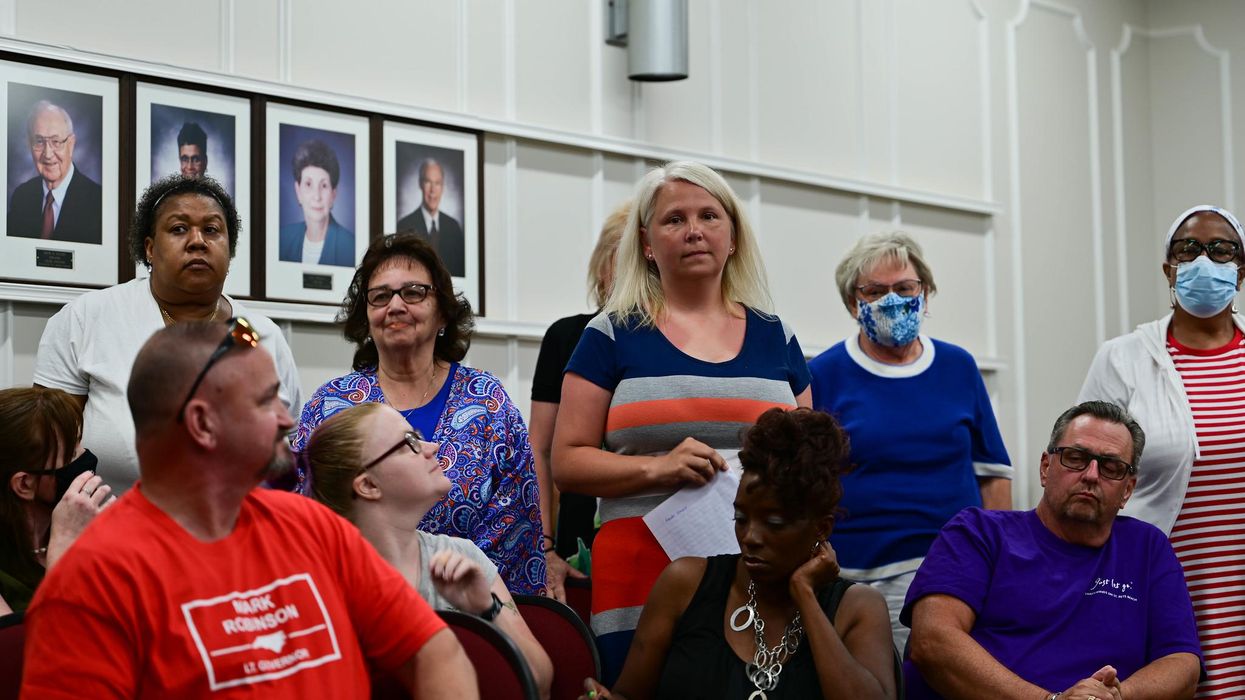Campt, a dialogue specialist, and Mahaley, an anti-racism organizer, are principals at The Dialogue Company.
America is immersed in a culture war that is a new manifestation of its age-old problem with race. School board meetings across America have devolved into ugly protests about critical race theory. The strategy to rebrand CRT was created, organized and executed intentionally as a political wedge issue. Right-wing operative Christopher Rufo publicly admitted: “We have decodified the term and will recodify it to annex the entire range of cultural constructions that are unpopular with Americans.”
CRT, like all wedge issues, is forcing the public into binary thinking, further polarizing the right against the left. Anti-racism allies on the left have made things worse by belittling the arguments, defending CRT and ultimately adding to the already dangerous polarization of our country. Instead of this divisive debate, what is needed is a nuanced dialogue grounded in compassion, one that can surface legitimate concerns on both sides.
One key claim of the anti-CRT operatives is that some K-12 educators are required to teach children that all white people — and America itself — are irredeemably racist. Most people, unless they are among the most hyper-woke activists, bristle at this assertion. Why? Because America learned during the civil rights movement that being racist was wrong — so wrong that, today, even the Ku Klux Klan denies that it is a racist organization; now, its members describe themselves as simply pro-white. Even those on the left who agree that racism in America was and is an acute problem feel uneasy about burdening their children with debilitating “white privilege” guilt.
Amidst the maylay, this anxiety is being funneled into local and state elections. Activists on the right hope to build more momentum toward the U.S. House and Senate elections in 2022. As we saw in Virginia’s gubernatorial race, using CRT as a weaponized wedge issue works. So instead of fighting harder, adding to the dangerous polarization, we suggest people who consider themselves anti-racist shift the focus and instead ask: “What should we teach our children about race and racism?”
This question is actually a very useful conversation for Americans to have. This will require some very different behaviors, particularly by people on the left who claim to deplore all matters of violence. In fact, people on the left (and anyone who is tired of endless divisive culture wars) need to embody non-violence in their communication style and end these bitter and divisive debates.
How do they do that?
- Start with ginning up your own compassion. Before a conversation, take active measures like deep breathing while consciously trying to transcend the frustration, anger or hatred for the “opponent.”
- Ask questions and listen. People often enter these conversations with preconceived notions of how people on the other side think. In addition to their opinion, ask them to tell you about an experience they had that led to that conclusion. Conversations focused on experiences beneath opinions create more interpersonal connections than ones based solely on opinions.
- Look for common ground, especially around values and goals. People on the right and the left want their children to love our country. Each side wants America to be great. Highlighting what you have in common builds trust and the possibility of influencing each other.
- Be honest about our racial predicament. Acknowledge that sometimes people accuse each other of racism too quickly and harshly. Admit that sometimes people’s discomfort about racism causes them to downplay the role that racism has always played in America’s journey. Most importantly, admit that racism is still a problem because you sometimes notice yourself having racist thoughts and feelings, even though you usually don’t tell anyone. Invite others to do the same as part of more honestly analyzing our racial situation.
In addition to diffusing the CRT argument, engaging in ways that allow opposing sides to talk openly and candidly (ideally in small groups) about their fears, hopes and values will lead to better curriculum choices. School boards and superintendents need to create settings where people can actually talk to each other instead of just managing the circus of public comments at meetings. Public officials and non-educational civic organizations need to plan public engagement events for dialogue. We need many groups — including churches — inviting people to dialogues not about CRT but to answer the question “What should we teach children about race?”
We can expect to see political operatives on the right continuing to focus on critical race theory as a wedge issue in a culture war. Anyone who considers themselves opposed to racism can use compassion to transform this culture war and create a long-overdue dialogue about how people on all sides collaborate toward America's promise of equality.



















Trump & Hegseth gave Mark Kelly a huge 2028 gift